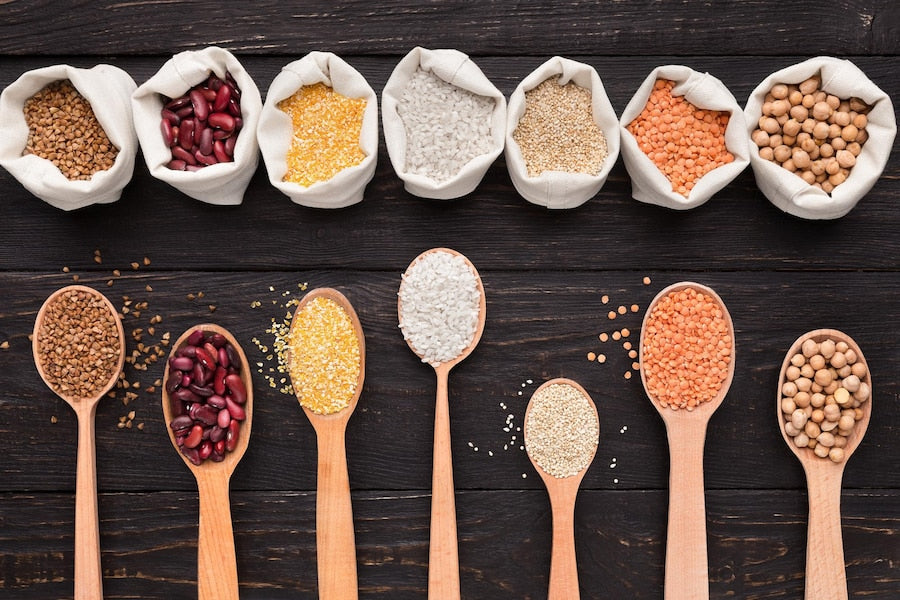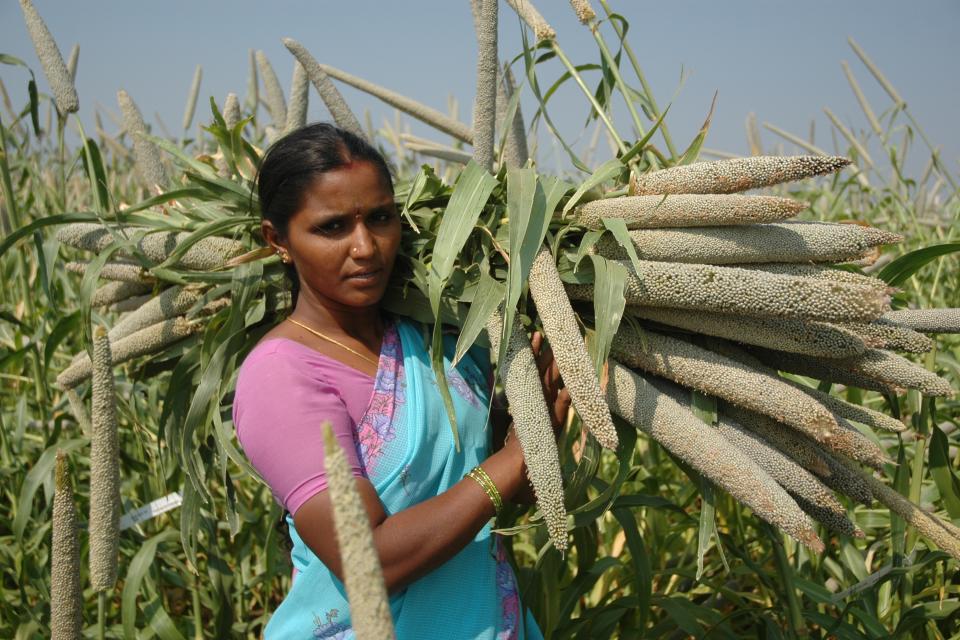Rediscovering Millets: The good old, nutritional powerhouse
Millets, often considered the forgotten grains of our food system, are making a resurgence in the modern world of health and wellness. These tiny powerhouses of nutrition pack a punch in terms of their health benefits, offering an array of vitamins, minerals, and fiber. Not only are they gluten-free, but they are also easier to digest, making them a great alternative for those with digestive issues. Whether you are looking to improve your health or make a positive impact on the planet, incorporating millets into your diet is a step in the right direction.
What are millets?

Millets are a variety of small-seeded annual grasses grown as grain crops, particularly on marginal soils in dry areas of temperate, subtropical, and tropical climates, and collectively, are referred to as ‘millet’. The millets commonly grown in India include Jowar (sorghum), Bajra (pearl millet), ragi (finger millet), Kagni seeds (foxtail millet), Kodo millet, Sprouted ragi atta (sprouted finger millet).
Did you know?
Around 97% of the world's total millet crop is produced in the semiarid tropical areas of Africa and Asia.
2023: International Year of Millets
In March 2021 - the UN General Assembly declared 2023 as the ‘International Year of Millets’ (IYM 2023), a campaign that will be a chance to spread knowledge about millets' health and nutritional advantages.
Here’s why we should add millets to our everyday meals:
According to the health and nutrition expert Tapasya Mundhra, “Millets are extremely nutritious and good for health and they also need less water and can store for years, as they have a long shelf life. What’s more? Millets are loaded with high amounts of starch and proteins, which can be beneficial if added to the daily diet.”
So, as we can see, millets are storehouses of nutrition and good health, but let’s zoom into their health benefits.
Millets are packed with magnesium, which has the beneficial properties of lowering blood pressure and lowering the risk of stroke and heart attacks.
Magnesium, which is abundant in millets and helps maintain a healthy balance of sugar levels in the body, in turn increasing the effectiveness of glucose receptors in the body.
Millets are fiber-rich grains that help ease intestinal discomfort and aid with digestion-related concerns.
Millets are rich in antioxidants such as curcumin, ellagic acid, quercetin, and catechins that also aid in the body's removal of foreign substances and free radicals and the regulation of enzymatic processes. These can help the blood to naturally cleanse.

Here’s a sneak peek into millets varieties, their nutritional benefits and how you can add them to your diet:
Adding Bajra or Pearl millet to your diet can help you get iron, protein, fiber, and minerals such as calcium and magnesium, doing wonders for your health.
Using Bajra in your meals: Simply add it to your chapatis or whip up a pancake with bajra (you can also add some foxtail millets/ kangni to your pancake mix). We’re sure there’s no better way to enjoy a meal guilt-free.
While ragi is often used as a nutritious alternative to wheat and rice, it is a gluten-free millet that is rich in protein and amino acids. What’s more? It’s beneficial for children’s brain development, too!
Using Ragi in your meals: So, the next time you’re craving idlis and dosas for breakfast, swap the rice batter with ragi and you’ll see just how tasty (and healthy) your meal gets. And if you’re in the mood for something simple, worry not! You can even use ragi or finger millet in your porridge - add equal portions of ragi, rice, moong dal, and jowar, feel free to throw in some fruits to make it yummier.
Foxtail millet (also known as Kangni Seeds) has good blood sugar-balancing carbs. This variety of millet is rich in minerals such as copper, phosphorus, and magnesium. Not to forget, they have high dietary fibre, too.
Using Ragi in your meals: Swap rice for foxtail millet (feel free to add quinoa, too) in your pulaos and biryanis to experience a boost of energy.
Millets offer the body a number of health advantages, thanks to their vitamin and mineral content. The demand for nutrient-rich grains like millet has increased, particularly as people's awareness of their health has grown.
.Are you ready to bring some healthy millets home? Wait no more, shop here.







